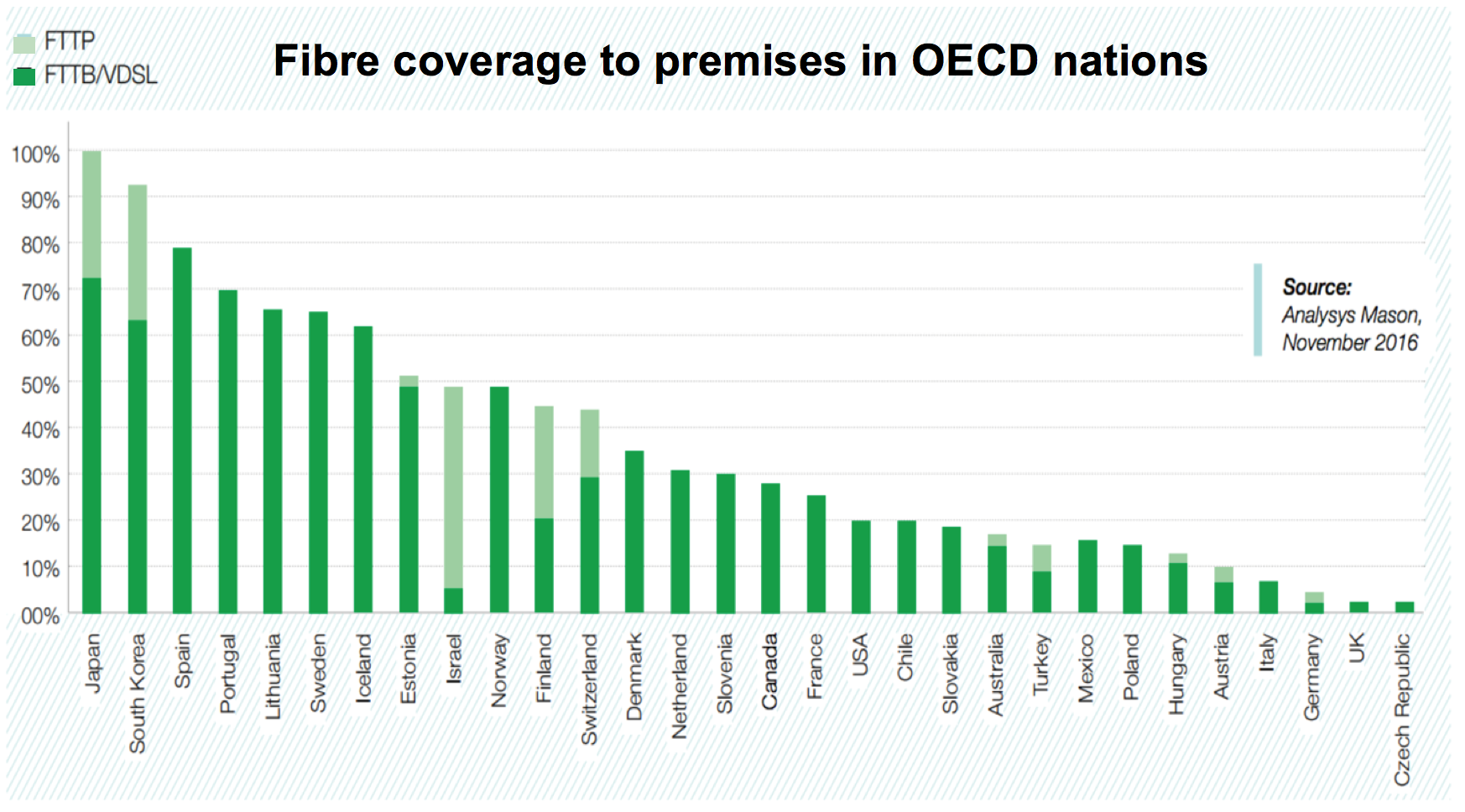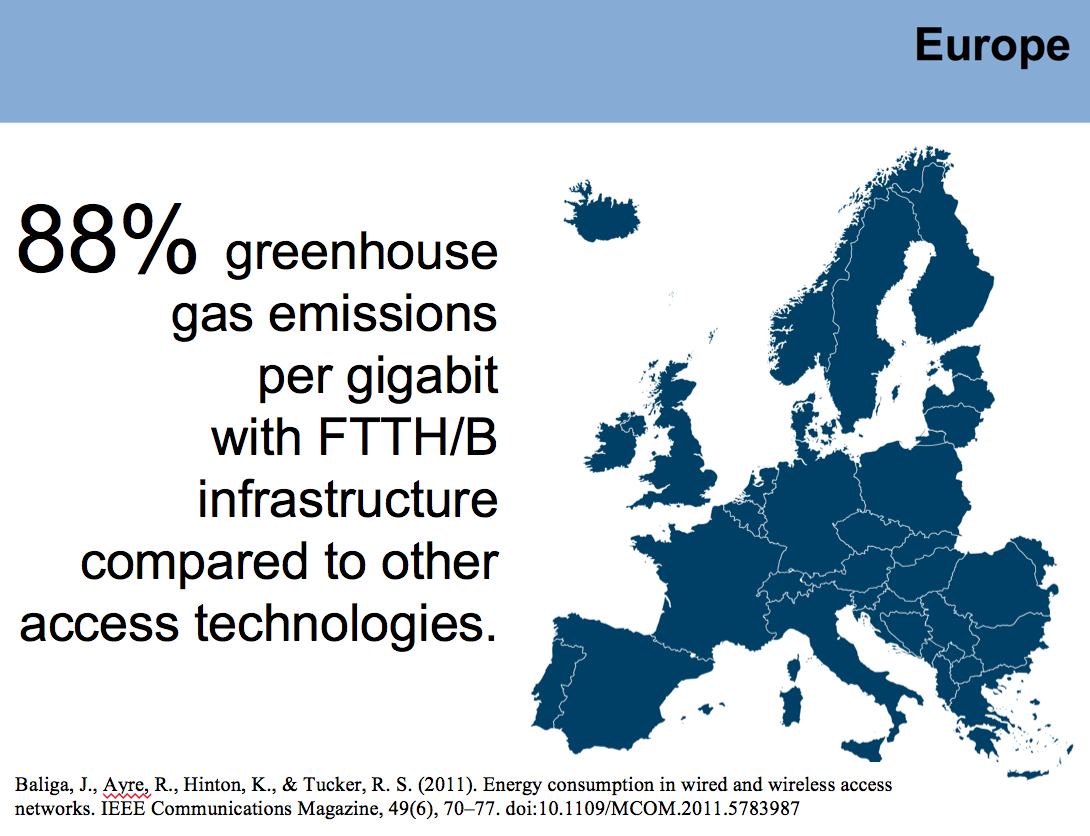How FTTP will save our sanity and our planet... #

by Caroline Hughes - Head of Portfolio Marketing & Campaigns
The planet needs gigabit speeds
In the USA, a combination of higher speed services and carbon-saving ICT solutions enabled by them, enables FTTH users to spend 12.8 days working from home per month, compared to an average of 10.8 days for DSL and cable users.[2] And, according to Boston Consulting Group, the potential climate benefits of ICT-enabled solutions will equate to around one fifth of global emissions by 2020. That's akin to removing all emissions from fossil fuel use and industrial sectors for the EU and US combined. BT Group's last company report also highlights the vital role of ICT in tackling climate change - pointing to its own commissioned research as evidence. And there's also no question in anyone's minds that ICT solutions are becoming increasingly data-intensive and that more and more bandwidth capacity will be needed to ensure the innovation and opportunity they bring about isn't stifled for the future.We must unite to drive change
Whether you support full-fibre infrastructure build for its economic, social or environmental benefits, one thing is clear; no single company can deliver a UK wide, full-fibre network in the timeframe it is so desperately needed. We must unite to achieve this common goal. Infrastructure builders must all commit wholeheartedly to it, the channel must educate and sell across it and, as end customers, we must all demand and embrace it.To learn more about the environmental upside of full-fibre infrastructure deployment, read Carbon Smart’s recently published report entitled: Our digital infrastructure needn’t cost the earth.
The report was produced by Carbon Smart on behalf of CityFibre. It draws on a variety of published academic, industry and media sources, it explores the environmental benefits of full-fibre network solutions across the full life cycle from manufacture, transportation, installation, operation, maintenance and end-of-life. It also considers the wider environmental benefits supported by FTTH networks in the context of 2015 Paris Agreement and the need to achieve substantial cuts in global greenhouse gas emissions.
[1] Baliga, J., Ayre, R., Hinton, K., & Tucker, R. S. (2011). Energy consumption in wired and wireless access networks. IEEE Communications Magazine, 49(6), 70–77. doi:10.1109/MCOM.2011.5783987
[2] RVA (2011). Broadband Consumer Research. Sosa, D. (2015). Early Evidence Suggests Gigabit Broadband Drives GDP.
Caroline Hughes is currently CityFibre’s Head of Portfolio Marketing & Campaigns. This opinion piece was first published by Caroline on LinkedIn. The views contained within it may not necessarily be endorsed in full by CityFibre.
CITYFIBRE NEWS
With network projects in over 60 cities and construction underway to reach up to 8 million homes

